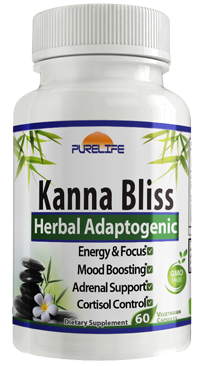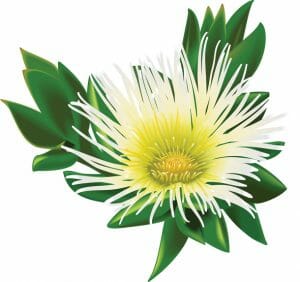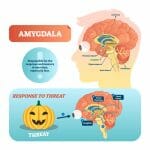Sceletium Tortuosum (Kanna) Overview: History, Benefits, Effects & More
There’s no two ways around it: these are very stressful times for the world at large. Even if your health is in check, the sheer amount of economic and societal uncertainty is enough to fuel many restless nights.
While much of this stress and anxiety is totally inevitable, it must be acknowledged that stressing and losing sleep is never good for one’s health (pandemic or not).
Deep breathing, meditation, and exercise are always the first things you should try when wracked with stress and anxiety, but there are additional measures which can be taken to support various bodily systems in nullifying the harmful effects of these nervous feelings.
Conveniently enough, some of the most notorious stress relief ingredients are derived from all-natural herbs and other plants which are known to have minimal (if any) side effects. One of the most underrated of these herbs is known as Sceletium tortuosum, or simply Kanna. Let’s take a look at what this ingredient can bring to the table for those coping with stress.
Table of Contents
The History and Definition of Kanna
Kanna (Sceletium tortuosum) is a relatively new potential treatment for psychological stress in the eyes of most Americans. While the consumption and study of this herb has only been prevalent in the last decade here, in South Africa it’s a completely different story.
The name Kanna actually translates to “something to chew”, and in South Africa it has been used by San hunter-gatherers and Khoi pastoralists for its mood-altering properties, likely since before recorded history.1
While chewing the root and swallowing the saliva is the most traditional method of Kanna consumption, there are now tinctures, powders, gel caps, teas, herbal snuff, and even smokable Kanna products. Many of these products have remained popular in South Africa, and most are now available to people throughout the world.
Kanna: Under the Microscope
There is little debate over the existence of Kanna’s mind-altering properties. However, the exact nature of these properties and the safety of Kanna consumption remain as subjects of scientific scrutiny.
The safety of a particular standardized Sceletium tortuosum extract known as Zembrin was evaluated in a 2013 clinical study which utilized thirty-seven healthy adults as test subjects over the course of 3 months.
The results of this study reflect positively on the safety of Kanna extracts due to the fact that the majority of adverse effects (headache, abdominal pain, and upper respiratory infections) were reported in the placebo group. Meanwhile, patient-dairies from this study provided some unsolicited testimonies of improved stress coping and sleep.2
There is also a 2013 study published by the American College of Neuropsychopharmacology which goes into a deeper analysis of the exact cognitive effects of Sceletium tortuosum extract.
This study includes a double-blind, placebo-controlled, cross-over design utilizing 16 healthy participants. The purpose of this design was to analyze participant’s amygdala reactivity when shown fearful faces.
While it may be strange to imagine a bunch of study participants being asked to react to pictures of facial expressions, this process was used to depict the effects of Sceletium tortuosum extract on the threat-circuitry of the human brain wherein reacting to human expressions of extreme emotion is key.
Given that anxiety can be defined as an overreaction to minor threats, understanding the mechanisms of neural threat-circuitry is key to determining whether or not a given substance has anti-anxiety properties. The results of this study successfully demonstrated that Sceletium tortuosum extract had a tangible effect on dual 5-HT reuptake inhibition and PDE4 inhibition.3
However, it is also worth noting that the study discloses some potential conflicts of interest in regards to their funding and affiliations. This disclosure is far from invalidating of the study as a whole, but it’s always worth noting.
Quality Sceletium Tortuosum Products

Kanna Bliss contains other potent herbal ingredients such as ashwagandha and rhodiola which are often referred to as adaptogens. This title comes from the concept that these herbs contain chemicals which may help your body adapt to stressful situations of a physical and mental nature.
Conclusion
While Kanna might not have the biggest reputation in America and other Western nations, its popularity seems almost destined to grow.
This is due to a number of factors: its long history of use, its lack of side-effects in clinical trials thus far, and its extraordinary stress-coping support properties.
Even though much is left to be studied about this herb, there is no doubt that anxious, sleepless nights are anathema to a healthy body. If you’re struggling with these sorts of issues, then Kanna may be the perfect candidate to provide relief.
Thank you for taking the time to read Sceletium Tortuosum (Kanna) Overview: History, Benefits, Effects & More
Please note: All information presented to you in this website is intended for your general knowledge only and is not a substitute for medical advice or treatment for specific medical conditions. We cannot, and will not give you medical advice. We strongly recommend you consult your physician for any and all specific health issues. If you have any questions or contributions, please contact us via email or phone-call. We are constantly looking for new information to promote wellness – and hearing from you would make our day.
Live Vibrantly!
References
- Sceletium-A review update
- A randomized, double-blind, parallel-group, placebo-controlled trial of Extract Sceletium tortuosum (Zembrin) in healthy adults.
- Acute Effects of Sceletium tortuosum (Zembrin), a Dual 5-HT Reuptake and PDE4 Inhibitor, in the Human Amygdala and its Connection to the Hypothalamus




